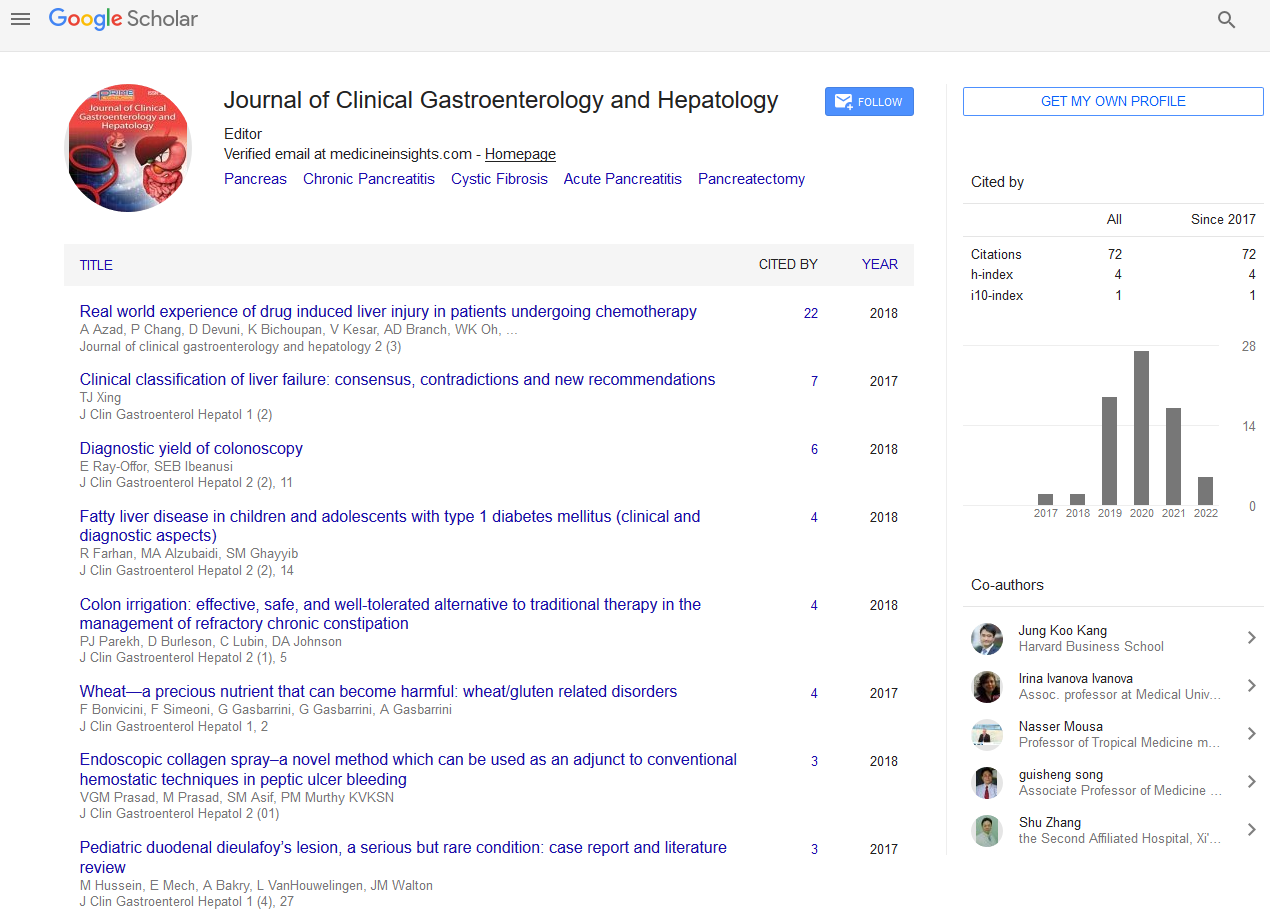Commentary - (2022) Volume 6, Issue 5
A Study on Gastric Ulcer, its Causes, Risks Factors and Preventions
Lanqing Zhang*
Department of General Surgery, Jilin University, China
*Correspondence:
Lanqing Zhang, Department of General Surgery, Jilin University,
China,
Email:
Received: 02-May-2022, Manuscript No. IPJCGH-22-13732;
Editor assigned: 04-May-2022, Pre QC No. IPJCGH-22-13732 (PQ);
Reviewed: 18-May-2022, QC No. IPJCGH-22-13732;
Revised: 23-May-2022, Manuscript No. IPJCGH-22-13732 (R);
Published:
30-May-2022, DOI: 10.36648/2575-7733.6.5.22
Description
A stomach ulcer, also known as a gastric ulcer, is an open sore
that develops in the lining of the stomach. You can also get
one in your duodenum, which is the first part of your small digestive
system that your stomach deals with. Peptic ulcers are
divided into two types: duodenal ulcers and stomach ulcers.
They’re named after pepsin, a stomach-related liquid that can
occasionally leak into the duodenum. These juices play a role in
the development of peptic ulcer disease. When the protective
mucous coating of your stomach and duodenum is destroyed,
gastric acids and stomach-related substances can harm your
stomach and duodenal partitions, causing peptic ulcers. As a
result, open wounds develop, which are constantly worsened
by the acidic. They can start to create major problems, such as
internal death, if left untreated. They may eventually wear an
aperture all the way through after some time. This is a medical
emergency.
Stomach ulcers (also known as gastric ulcers) are painful bruises
in the stomach lining. Peptic ulcer disease manifests itself in
the form of stomach ulcers. When the thick layer of body fluid
that protects your stomach from stomach-related secretions is
reduced, stomach ulcers develop. This allows stomach acids to
kill the tissues lining the stomach, resulting in an ulcer. Stomach
ulcers can be efficiently relieved, but if they are not treated
properly, they can become dangerous. Stomach ulcers have a
variety of negative effects. The severity of the adverse effects
is determined by the severity of the ulcer. A devouring sensation
or torment in your abdomen between your chest and tummy
button is the most well-known adverse effect. When your
stomach is empty, the discomfort is usually more intense, and it can last anywhere from a few minutes to many hours.
The type of treatment you receive depends depend on the
cause of your ulcer. Although most ulcers may be treated with
medication prescribed by your primary care physician, in rare
circumstances, a medical treatment may be required. It is critical
to treat an ulcer as soon as possible. Consult your primary
care physician about a treatment strategy. If your ulcer is effectively
draining, you’ll almost certainly be admitted to the hospital
for more aggressive treatment, including endoscopy and
IV ulcer medications. A blood bonding may also be required.
With therapy, the ulcer’s side symptoms may fade quickly. Regardless
of whether your side effects go away, you should continue
to take any medication recommended by your primary
care physician.
Clean up with cleanser and water on a regular basis to prevent
the spread of bacteria that might develop a stomach ulcer. Similarly,
make sure to thoroughly clean all of your food and cook
it to perfection on a case-by-case basis. To avoid ulcers caused
by NSAIDs, stop taking them (if possible) or reduce how much
you take them. If you really want to take NSAIDs, make sure to
stick to the recommended dosages and avoid drinking alcohol
while taking them. Also, take these medications with food and
plenty of fluids on a regular basis.
Acknowledgement
None.
Conflict of Interest
Authors declare no conflict of interest.
Citation: Zhang L (2022) A Study on Gastric Ulcer, its Causes, Risks Factors and Preventions. J Clin Gastroenterol Hepatol. 6:22.
Copyright: © Zhang L. This is an open-access article distributed under the terms of the Creative Commons Attribution License, which permits unrestricted use, distribution, and reproduction in any medium, provided the original author and source are credited.

